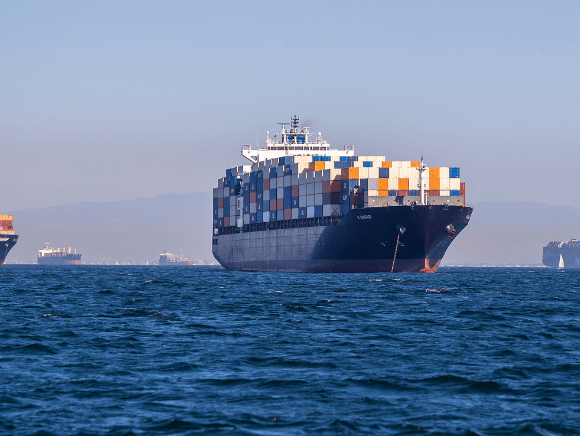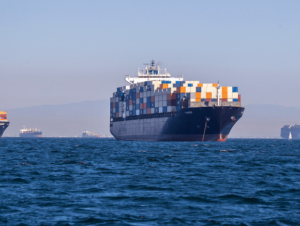The global supply chain crisis is only getting worse. As simultaneous international demand grows, supply and output are unable to keep pace. This is leading to a laundry list of issues affecting individuals and businesses; primarily inflation and shortages. But the White House ostensibly believes this is a “high class problem,” pushing Press Secretary Jen Psaki to dismiss this economic calamity as the “tragedy of the treadmill that’s delayed.” Is this really all about treadmills, or is it about Bidenomics paving the road to stagflation?
National Guard Saves Your Treadmill
President Joe Biden is considering calling in the National Guard to help ease the pressures from the supply chain crisis. After a prominent Washington newspaper reported the proposal was being mulled over, the president was asked about this during his CNN town hall in Baltimore, MD. If the United States cannot resolve the truck driver shortage, Biden noted that the National Guard would need to drive these trucks to deliver the goods. But he explained that the federal government is getting more truckers on the road, so it might not be necessary.
During a press briefing, Psaki confirmed that deploying the National Guard is no longer being considered by the White House. However, she did note President Biden would have the authority to use the National Guard to ensure the ports were up and running. She told reporters:
“Any president has the ability to use the National Guard from the federal level. Requesting the use of the National Guard at the state level, which is often how it’s done, is under the purview of governors and we’re not actively asking them to do that and we’re not actively pursuing the use of the National Guard on a federal level.”
A Pentagon spokesperson confirmed to the Military Times that “[w]e at DoD have received no requests for assistance with transportation.”
 Dropping Your Treadmill in the Ocean
Dropping Your Treadmill in the Ocean
This past spring, Liberty Nation reported on the growing number of shipping containers that fell off their maiden voyage and sank into the ocean. At the time, it was estimated as many as 1,000 boxes had fallen overboard, further exacerbating the supply chain disruptions. But are ships doing a better job of securing the cargo? Not quite.
According to the Canada and United States Coast Guards, dozens of containers fell off the Zim Kingston and close to the Juan de Fuca Strait entrance. This is located between Washington State and British Columbia. Bad weather and rough seas are being blamed for this incident.
So far, a tweet from the U.S. Coast Guard showed that eight of the 40 containers were discovered. However, the Canada Coast Guard has admitted that some of the containers coming from South Korea and traveling to Vancouver will sink. Others, officials say, could wash up on shore. There have been no reports of injuries or dangerous substances inside the containers.
Panic Ordering Treadmills
The talk of the marketplace is consumers panic buying and hoarding gasoline, meat, and holiday toys. It turns out that retailers and manufacturers are also engaging in a bout of panic ordering. As a result, these companies are overordering or buying stuff too early, which industry observers assert will exacerbate the situation since the market has been trying to catch up from months ago. This, according to experts, is igniting a so-called bullwhip effect: The slight adjustment at the retail level can trigger a ripple effect for manufacturers, wholesalers, and distributors.
A Shortage of Treadmills – and Workers
Today, there is a shortage of a diverse array of goods, from produce at the supermarket to sneakers at the Nike store. Over the last several months, depending on where consumers are, treadmills and other home gym equipment have been in short supply. But another shortage could escalate inflation and impact Corporate America: Workers.
This year, there has been a riveting development in the post-pandemic labor market. On the one hand, there is a record number of job openings (10.4 million in August). On the other, the number of people quitting their jobs surged to a 21-year high or 4.3 million. Multiple sectors have felt the pain of workers submitting their resignation papers at high rates, including food and accommodation services, wholesale trade, and public education.
“The lack of skilled workers is not only just another symptom of post-lockdown economics but also the result of more fundamental developments in the U.S., the eurozone and the U.K.,” ING economists Carsten Brzeski, James Knightley, Bert Colijn, and James Smith wrote in a recent research note.
Is this finally the complete rise of automation? If so, it is happening at restaurants throughout the United States economy. The sector reported that four in five operators are understaffed, prompting many businesses to install the $3,000-a-month Miso Robotics’ Flippy robot to produce hamburgers. This tremendous success has allowed the company to expand its services to cook fries, provide hospitality cleaning services, and offer assistance at airports. Food delivery may also be in production soon.
So, if humans are not willing to do these jobs, a piece of steel might be necessary to cook customers a burger with extra pickles to address two hurdles: prices and labor.
~ Read more from Andrew Moran.





